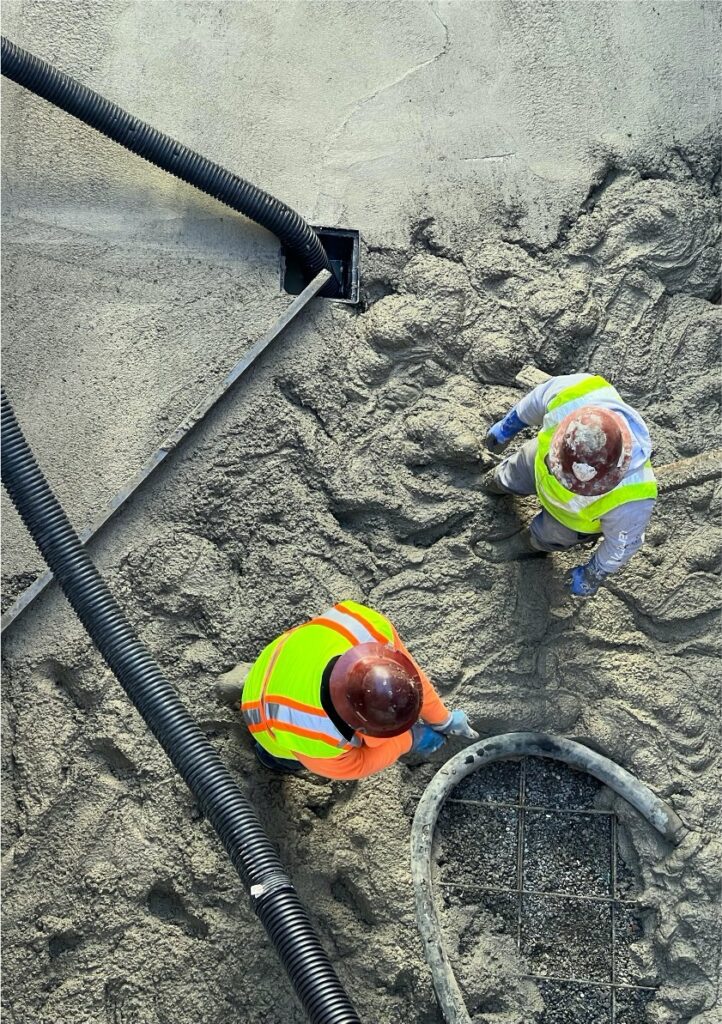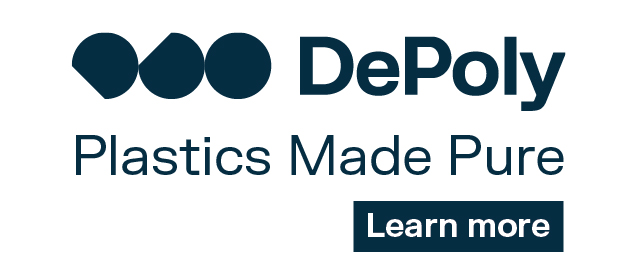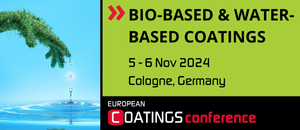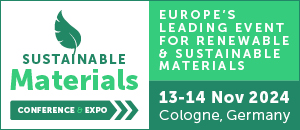C-Crete Technologies, a trailblazer in the creation of cement-free concretes, is celebrating the pour of the world’s first zeolite-based concrete, an important step in proving that the revolutionary carbon dioxide emission-free product is ready for market.
The Nov. 16 pour at 7,200 Woodlawn in Seattle was for a 20-ton, slab-on-grade outdoor concrete foundation and sidewalk steps using zeolite as the binder instead of Portland cement. This pour builds upon prior pours (in the same building) of approximately 100 tons of C-Crete cement-free concrete using different feedstocks.
The use of the new zeolite binder devoid of Portland cement signifies that it is now possible to begin significantly reducing carbon emissions in the construction industry. Portland cement concrete, which for many decades has been the most widely used material in construction, is responsible for around 8 percent of total worldwide CO2 emissions, mainly because of the chemically released CO2 during cement processing. Because zeolite is a naturally occurring non-carbonate rock, it eliminates this key environmental concern. Furthermore, this binder captures CO2 from the air as it cures.
Zeolite is only one product in C-Crete’s portfolio of patented cement-free concretes that use a variety of naturally occurring, abundant local rocks as cementitious binders.
“Our successful 20-ton concrete pour in Seattle utilizing the zeolite-based binder is an important step in our quest to revolutionize construction,” said Rouzbeh Savary, Ph.D., founder and president of C-Crete Technologies. “This landmark use of the product epitomizes C-Crete’s commitment to reshaping the industry through environmentally conscious innovations. By tapping into various natural rocks like zeolite, and converting them into cementitious binders, we’re forging a path toward truly sustainable infrastructure.”
Zeolite is a rock primarily made of silicon and aluminum, two of the most abundant elements of Earth’s crust. C-Crete’szeolite-based concrete has more than 5,000 psi in compressive strength. It flows and pumps like conventional concrete, and meets the industry standards set by ASTM International for mechanical and durability properties, such as expansion and freeze-thaw resistance. Importantly, it does this while maintaining cost-parity with conventional concrete. The zeolite rock for the project was sourced from Zeolite Composites LLC.
“What is exciting about this pour are the additional implications of using zeolite,” says Donald Davies, owner of the Seattle building and chair of Building Transparency, a nonprofit organization dedicated to enabling the building industry to address embodied carbon’s role in climate change. “This is a potentially new feedstock material that is not in the market today as a supplementary or in this case a fully alternative cementitious material [SCM or fully ACM]. This was a field trial of a new material to show what is possible. It was batched from a ready-mix truck, pumped and finished using normal construction procedures on the site.”
“Concrete, in particular, is used in large quantities on nearly every building as an inexpensive, durable structural material,” says Kjell Anderson, principal and director of sustainable design at LMN Architects, a Seattle-based architecture firm that was not involved in this project. “Our use of concrete is unlikely to change, so using Type 1L cements, in combinations with SCMs such as fly ash and blast furnace slag, is our main reduction opportunity currently. There are limits of availability of SCMs, and to get beyond our typical 20 to 40 percent reduction [in the use of Portland cement], we need zero-carbon cements like C-Crete’s. There are other products that have announced they are coming to market, but none are currently available.”

About C-Crete Technologies
C-Crete Technologies is a leading materials science company committed to inventing, building and scaling up the next generation of infrastructure materials with ultra-low or negative CO2 footprints. With a relentless focus on environmental stewardship and technological innovation, C-Crete aims to address the global challenges of climate change while delivering superior infrastructure materials at scale.
Source
C-Crete Technologies, press release, 2023-12-06.
Supplier
C-Crete Technologies
George Washington University
Zeolite Composites LLC
Share
Renewable Carbon News – Daily Newsletter
Subscribe to our daily email newsletter – the world's leading newsletter on renewable materials and chemicals

















